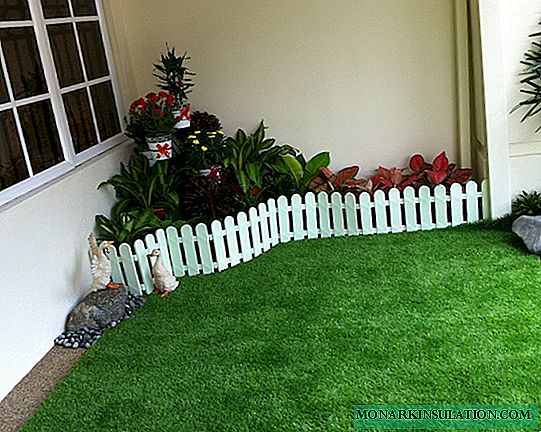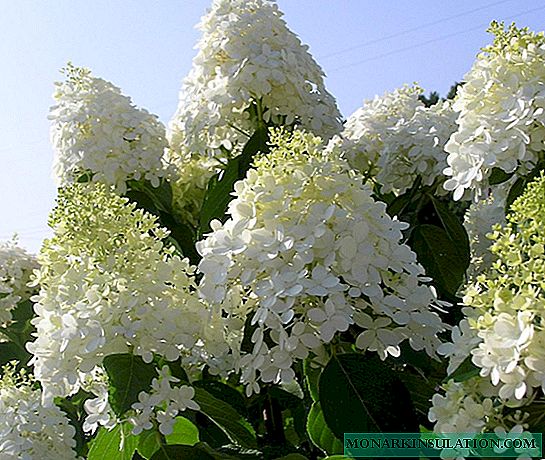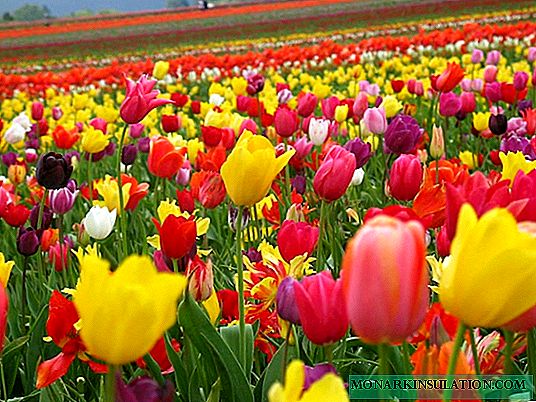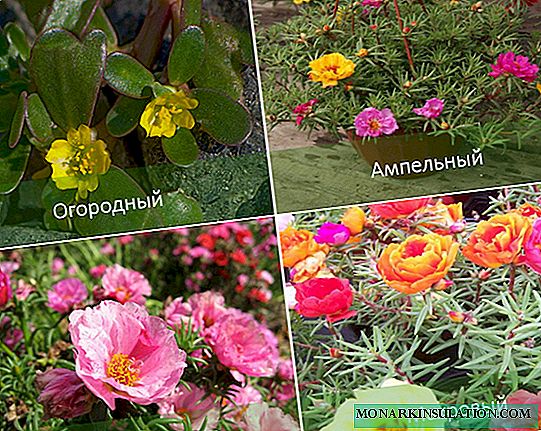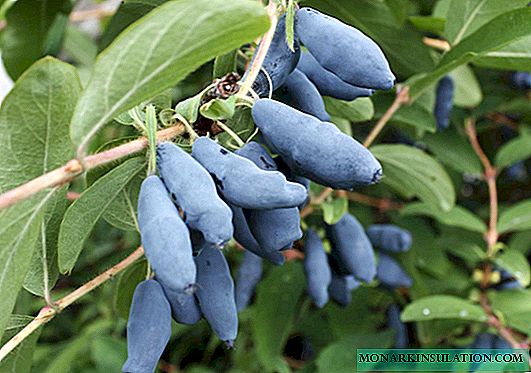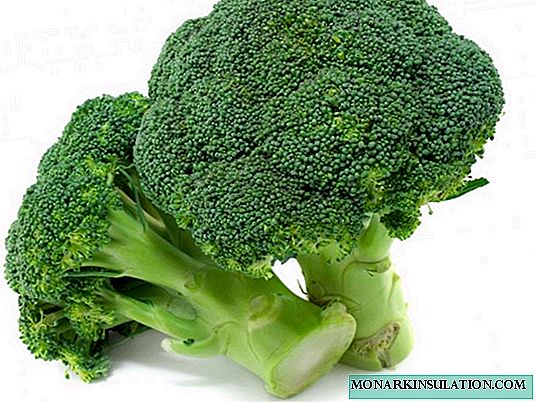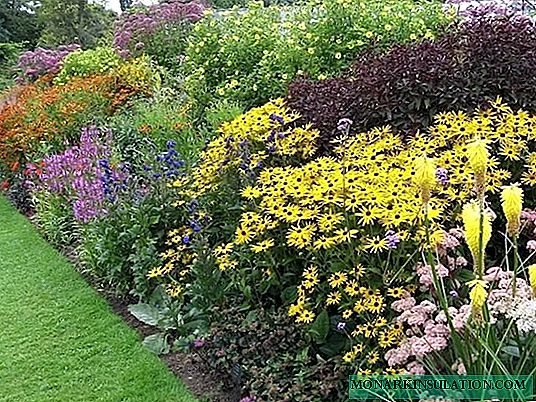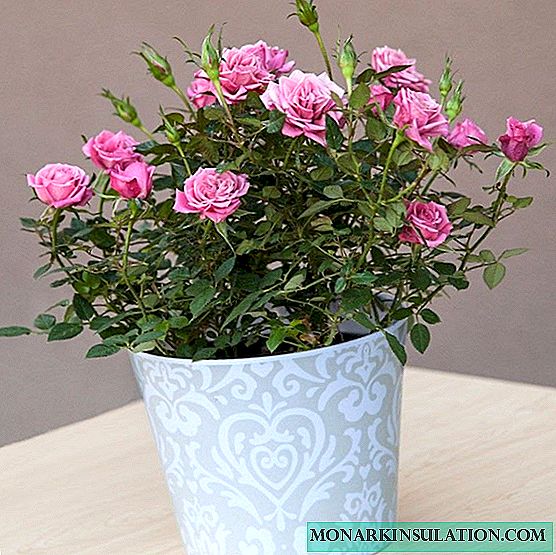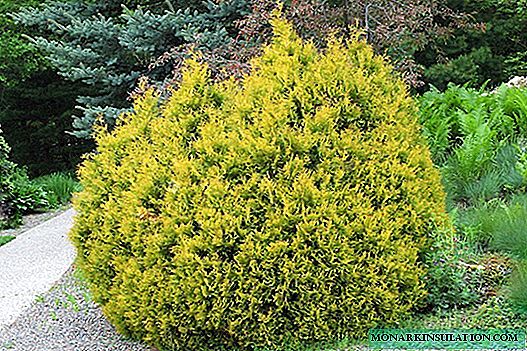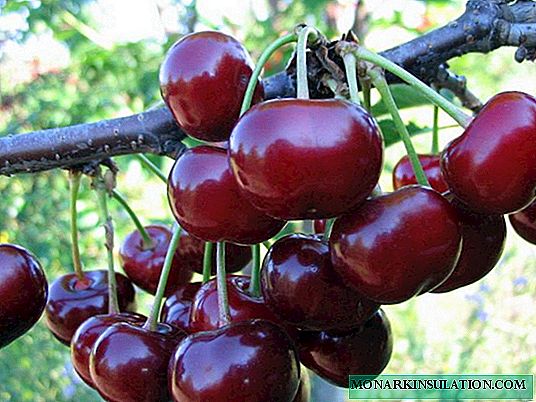
New varieties of cherries, which include Novella, have a number of qualities attractive to gardeners. They are fruitful, resistant to diseases, frost-resistant. To grow Novella cherries, you do not need to be a very experienced gardener.
Description of Novella Cherry Variety
The Novella cherry variety was created at the All-Russian Research Institute for Fruit Crop Breeding (VNIISPK). The official registration date is 2001.
The height of an adult cherry is not more than 3 m, the crown is slightly raised, forms a rounded shape, the crust is dark walnut in color. The leaves are dark green, have a matte shade. Fruits are tied on bouquet branches and young growths. They have a rounded shape with a slightly indented apex and a small funnel. The mass of cherries is 4.5-5 g, the taste is sour-sweet, according to a five-point system it has a rating of 4.2. Berries do not crack with excess moisture, tolerate transportation well.

The berry, juice and pulp of Novella cherry are painted in dark red color, when the fruits fully ripen, they become almost black
The variety is partially self-pollinated. Cross pollination with the following cherry varieties is recommended:
- Vladimirskaya
- Griot of Ostheim,
- Chocolate Girl.
According to the description of VNIISPK, fruiting occurs in the 4th year. Cherry blossoms in the average time for this culture (May 10-18). The short story refers to mid-ripening varieties, the ripening period is the third week of July. All fruits ripen almost simultaneously - within a few days. You can collect up to 19 kg of fruit from one tree (average yield - 15 kg).

From one Novella cherry tree, you can collect up to 19 kg of ripe fruits
Grade advantages:
- resistance to fungal diseases (coccomycosis and moniliosis);
- good winter hardiness of the tree.
Disadvantages:
- average frost resistance of flower buds;
- unstable fruiting: in different years the mass of the obtained crop may be different.
Planting cherries
Planting cherries is not a big deal.
Seedling Selection
For planting, annual or biennial trees are suitable, older ones take root much worse and are not recommended for purchase. The approximate growth of such seedlings:
- 70-80 cm - annuals;
- 100-110 cm - two years.
Unscrupulous nurseries may offer planting material grown with a high nitrogen content. Such trees have a beautiful appearance, but their survival in a new place is very low. Seedlings grown on nitrogen have green spots on the bark in the form of dots and stripes, and the natural cherry bark should be uniformly brown with a silky sheen.
When choosing planting material, a closed root system is preferred, but at the same time you need to be sure of the integrity of the supplier. The root system should be well defined, not chopped off, have more than one thick root, the presence of fibrillation around the main shaft is necessary.

When choosing cherry seedlings with an open root system, pay attention to the roots: they must be well defined, not chopped off, have a fibrillation around the main stem
Place for cherries
All fruit trees, including cherries, prefer neutral or slightly alkaline soils with pH = 6.5-7. This is an important factor affecting the survival rate of a seedling and the productivity of an adult tree.
The acidity of the soil can be easily determined using a special kit with litmus papers or weeds prevailing on the site (creeping wheatgrass, odorless chamomile, coltsfoot, field bindweed, clover, poppy field bark, clover, field bindweed, alkali on alkaline soil white, on sour - horsetail).
On acidic soils, liming is required when planting.
When planting cherries, it is necessary to take into account the topography of the site:
- Cherry is never located in pits, lowlands, gullies; the ideal place is the slope of a small hill with a slope of 5-8 °. In the absence of any elevations in the area, you can plant on the plane;
- the best orientation is west. Landing on the south side is undesirable, since in this case the boles are more often damaged during frosts, and cherries growing on the south side are more affected during the summer drought. Oriental accommodation is also allowed. In the northern orientation, the cherry blooms later and the taste of its fruits is more acidic;
- the place is chosen so that the crown of cherry is slightly blown by the wind, stagnation of air around it is undesirable.
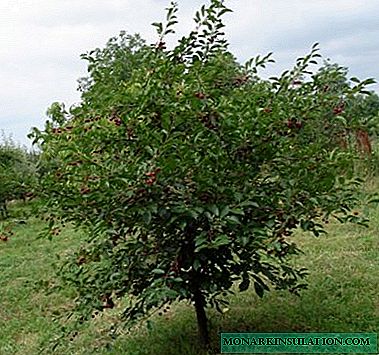
The place for the cherry is chosen so that its crown is slightly blown by the wind
When several trees are planted, a distance of about 3 m is maintained between them.
Landing time
The best planting period is spring, the period before buds open - this roughly corresponds to April. Cherry seedling, in which leaves began to bloom, is of low quality.
If it is impossible to purchase planting material at a specified time, you can take a seedling in the fall after leaf fall and save it until spring, then to plant it at the recommended time. Such a seedling is stored horizontally in a small trench, completely covering the entire trunk with earth. The crown does not drip, it is closed with a dense material to protect against mice. In winter, more snow is thrown at this place.

Properly buried seedlings are well preserved until spring.
Agriculture planting cherries
This work can be represented in the form of several stages shown in the diagram.

Planting a cherry seedling consists of several stages
Let's consider each stage in more detail:
- The day before the cherry is planted, it is carefully removed from the container, all the roots are straightened and placed in a solution of the root stimulant (Heteroauxin, Kornevin). If the seedling is purchased without a container, and the root system is covered with clay, it must first be washed off.
- A pit is dug 60 × 60 × 60 cm in size. For heavy soils, the depth becomes a little more and drainage is laid out at the bottom. If the groundwater is close (less than 3 m), a 60-70 cm high embankment is made for planting cherries. When digging a hole, a fertile layer (20 to 40 cm depending on the type of soil) is placed separately from the ground of the lower layer.

The cherry pit should be 60 × 60 × 60 cm
- A mixture is being prepared to fill the pit: excavated fertile soil, a bucket of old humus (at least three years old) or rotted compost, a bucket of deoxidized peat; if necessary, liming materials are added: dolomite flour, ash, eggshell or lime. In the absence of organic fertilizer, superphosphate (40 g) and potassium chloride (25 g) can be used. Nitrogen fertilizers do not contribute during planting.
- Before placing in the hole, the tips of the main roots are trimmed. And also on 1-2 cm the tops of a sapling are cut off.

Sick and dried roots are cut, the cut plane should be perpendicular to the root
- Part of the fertile mixture is laid on the bottom of the pit and a seedling is placed on it, orienting it so that the vaccination site is on the north side of the stem. The height distribution should provide coverage with earth to the root neck of the tree, i.e., all roots must be in the ground.

The place of scion can be determined by the bend of the trunk and different shades of the color of the bark
- The pit is gradually covered with a fertile mixture, making sure that the roots do not bend up. After each ten-centimeter layer, the earth is shed from a watering can. Impregnation with water will ensure a tight fit of the earth to the roots of the plant and tamping the soil is not required. The ground layer of the lower layer is laid at the very end, since it does not contact the roots and does not affect the nutrition of cherries.
- Next to the young tree, it is advisable to drive a stake and in two places attach a seedling to it. So the cherry will be resistant to gusts of wind.
Within 7-10 days, the newly planted cherry should be watered every day (at least 10 l). To prevent water from spreading, it is better to make a circular comb.
Video: how to plant a cherry
Features of growing cherry Novella
With proper agricultural technology, Novella cherry will produce a high yield for twenty years.
Watering
In the year of planting, the tree is often watered (once every five days) so that the soil of the trunk circle does not dry out. After watering, the soil loosens and, if necessary, is cleared of weeds. When using mulch, moisture is stored longer in the soil, which reduces the amount of watering. In subsequent years, cherries are watered only in the dry summer no more than 2 times a month.
Neighborhood with other plants
When planting cherries, it is necessary to consider its neighbors. Self-pollination guarantees no more than 20% of the crop that is removed by pollination with another variety. Therefore, it is advisable to have near one (in a radius of up to 40 m) a cherry of one of the varieties recommended above.
Other fruit trees are suitable as other neighbors, provided that they do not obscure the crown. Berry bushes (blackcurrant, sea buckthorn, blackberry, raspberry) are not recommended for close proximity. You can plant any shade-loving herbaceous plants with a superficial root system, as they ensure the conservation of moisture in the soil.
Winter preparations
Good frost resistance of Novella is guaranteed only for the regions indicated on the VNIISPK website in the description of this variety: these are the Oryol, Lipetsk, Tambov, Kursk and Voronezh regions.
In any case, the tree is prepared for wintering:
- After leaf fall, water-loading irrigation of the soil is carried out.
- After that, the trunk circle is mulched with peat or compost (in its absence, you can simply add a layer of earth).

After water-loading irrigation of cherries, the trunk circle is mulched with peat or humus
- After snowfall, make a snowdrift around the trunk. You can cover it with straw on top. This measure prevents early flowering, which will protect the ovaries from the last frost.
Pruning
The first pruning is carried out immediately after planting. In subsequent years, the best period for the formation of the crown is spring until the buds open (second half of March), while the air temperature should not be lower than -5 ⁰C. Sanitary thinning can be carried out in the fall, but most often these two types of work combine.

If you need to make a cut on the external kidney (for example, to avoid thickening the crown and direct the branch out), then make an oblique cut (approximately 45 °) at a distance of 0.5 cm from the outward facing kidney
The crown of Novel's cherry is formed of a sparse-tiered type.
Table: formation of a crown of a sparse-tier type of tree cherry
| Year of trimming | What do we have to do |
| Annual seedling |
If the annual seedling is without branches, then it is cut to 80 cm, and the next year pruning is carried out as described above |
| Two year old seedling |
|
| Third year |
|
| Fourth and subsequent years | As a rule, by the fourth year, the crown of the tree is already formed and consists of a central shoot (optimal height is 2.5-3 m) and 8-10 skeletal branches. To limit the growth of cherries, the top is sawn 5 cm above the nearest skeletal branch. In the following years, cherries require only sanitary and anti-aging trimmings |
Young shoots are not shortened to a length of less than 40 cm so that bouquet twigs can form on them.

Bouquet twigs are formed on shoots 30-40 cm long
In the future, it is on these branches that sweet fruits will grow.
Video: pruning cherry tree varieties
Fertilizer application
In the first year of planting, top dressing is not performed, it is enough that was added during planting. When applying fertilizers, one must take into account that their excess harms the cherry.
Table: cherry feeding scheme
| Application Time | Top dressing |
| Spring |
|
| Summer | Summer top dressing is carried out only for fruiting trees:
|
| Autumn | Contribute superphosphate (150-300 g / m2) and potassium chloride (50-100 g / m2) For young trees, the norm is 2 times less, for cherries older than 7 years - 1.5 times more. Every 3-4 years make compost or manure. After the first frosts, fruiting trees are sprayed with a urea solution (30 g / m2) |
Diseases and Pests
Variety Novella was created on the basis of a hybrid of cherry and bird cherry (cerapadus). This is associated with its frost resistance and resistance to all fungal diseases, and it is also less likely to be affected by pests. Therefore, the variety does not need to be treated with pesticides and fungicides.
Reviews about Novella Cherries
Cherry Novella showed itself in all its glory for the fifth year. The fruits had a large appearance, were red-black and had a pleasant sweetish taste with cherry sourness. Every year, our Novella cherry turned into a bush-shaped tree. Its branches are sprawling, all the way to the ground. After 8 years, the tree is slightly more than three meters, which greatly facilitates the harvesting of ripe cherries.
Nikolaevna
//otzyvy.pro/reviews/otzyvy-vishnya-novella-109248.html
I liked the novel very much - a fast-growing, resistant to mushrooms and early in fruiting season. At the same time, it does not lose growth. Great dessert flavor.
Zener
//forum.prihoz.ru/viewtopic.php?t=1148&start=2025
This year I did several vaccinations of Novella. It is strange that the variety is not very common with its resistance to disease.
Jackyx
//forum.prihoz.ru/viewtopic.php?t=1148&start=2025
The Novella cherry variety is unpretentious in leaving. With a little effort, you will get a good harvest from such a tree. It is also important that the fruits of Novella have universal application: you can make jam, make wine or just enjoy a wonderful dessert.






